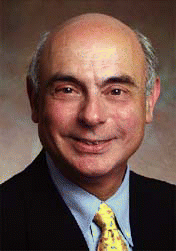Abstract
Through his courage and convictions, this visionary otolaryngologist is pioneering new models of health and healing for the nation in this century.
Explore This Issue
November 2006Niccolo Machiavelli wrote in his 1532 treatise, Il Principe, There is nothing more difficult to take in hand, more perilous to conduct, or more uncertain in its success, than to take the lead in the introduction of a new order of things. Yet this is exactly what Michael M. E. Johns, MD, Executive Vice President for Health Affairs at Emory University in Atlanta, does each day as one of the nation’s renowned physician thought leaders on health care reform.
The future of health care is a gigantic issue for America, as it will affect everyone and everything, said Dr. Johns, who is also the CEO of The Robert W. Woodruff Health Sciences Center, Chairman of the Board for Emory Healthcare, Co-Chairman of the Board of EHCA, LLC, and Professor in the Department of Otolaryngology at the Emory University School of Medicine.
In a country with multiple health systems and almost 50 million uninsured, reform is essential and we need to address this issue again, said Dr. Johns. Unfortunately, not until costs are so high, the burden on employers and government so great, and the noise of the press so loud, will we see more serious and in-depth conversations on reform in Congress.
Almost 50% of Americans say the country’s health care system needs fundamental changes and 30% believe it should be rebuilt completely, according to a survey, Public Views on Shaping the Future of the U.S. Health System, conducted by Harris Interactive for the Commonwealth Fund. Participants, regardless of political affiliation, are very eager for the president and Congress to address specific issues, such as prescription costs and the long-term solvency of Medicare, to name a few (see sidebar.)
Predictive Health
I think health care is going to change dramatically over the upcoming decades from a reactive and acute approach of caring for individuals to one that is more proactive-that is, keeping people healthy as opposed to treating their sickness, said Dr. Johns. Eventually, the onset of disease will be considered a failure of the health care system, rather than its focus.
This paradigm shift, concentrating on health rather than disease, will come from the science that is developing around the country in the areas of genomics, proteomics, metabolomics, structural biology, computational science, and other advanced technologies, Dr. Johns said. Predictive health and healing will allow us to provide care that is predictive, prospective, personalized and preventive-what we refer to as P4.

Leave a Reply